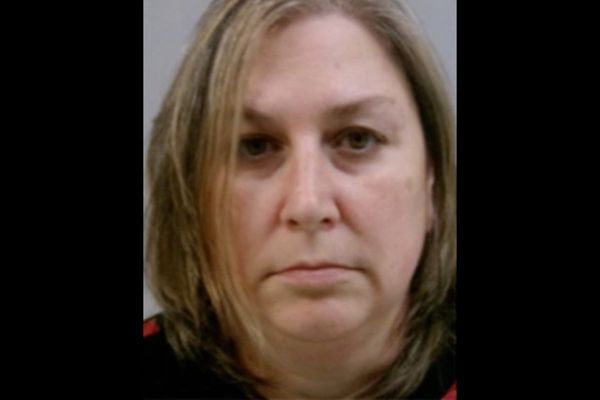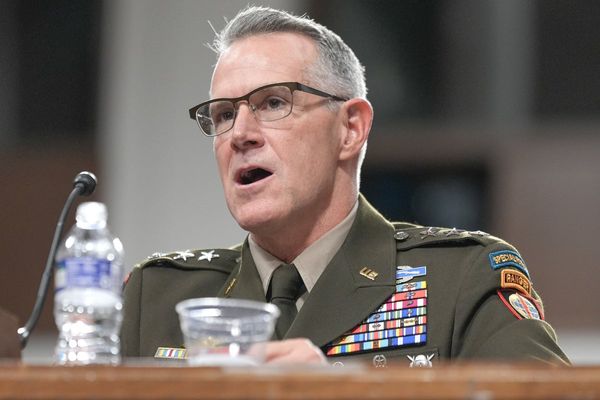CheckMate is a weekly newsletter from RMIT FactLab which recaps the latest in the world of fact checking and misinformation, drawing on the work of FactLab and its sister organisation, RMIT ABC Fact Check.
You can read the latest edition below, and subscribe to have the next newsletter delivered straight to your inbox.
CheckMate October 21, 2022
Good morning,
This week, CheckMate investigates why the latest Pfizer revelation is not the smoking gun claimed by anti-vaccine advocates.
We also tackle a persistent claim about the generosity of Australia's contributions to Ukraine, and ask: is the UN really taking steaks off the menu?
Viral Pfizer 'admission' not what it seems
A claim that a Pfizer spokeswoman "admitted" that the company's COVID-19 vaccine was "never tested on preventing transmission" is not quite right, CheckMate has found.
In a video viewed close to 13 million times on Twitter alone, Rob Roos, a Dutch member of the European Parliament, alleges that a Pfizer director "admitted" that "at the time of introduction, the vaccine had never been tested on stopping the transmission of the virus".
"This removes the entire legal basis for the COVID passport," Mr Roos says in the video.
A clip from a European Parliamentary hearing follows in which Mr Roos asks Pfizer's president of international developed markets, Janine Small, if the vaccine was "tested on stopping the transmission of the virus before it entered the market".
In response, Ms Small answers "no", and says the company had to "move at the speed of science".
But despite Mr Roos' allegations that this was a "scandalous" admission by the company, Pfizer never claimed that its pre-market trials tested the vaccine's effect on transmission.
Julie Leask, a social scientist specialising in immunisation, told CheckMate the claim made by Mr Roos "heavily distorts the facts".
According to Professor Leask, the before-market trials of COVID-19 vaccines had a "primary outcome of reducing risk of any disease and severe disease, but not transmission".
"It was never guaranteed the vaccine would give sterilising immunity," Professor Leask said in a statement (which was also provided to other media outlets).
Pfizer spokesman Andrew Widger, meanwhile, told US fact-checking outlet PolitiFact the company's trial was "designed and powered" to test the vaccine's efficacy on preventing disease and serious disease.
"Stopping transmission was not a study endpoint," he told the fact checkers.
Indeed, the report on Pfizer's stage 3 clinical trial, published by the New England Journal of Medicine in December 2020, does not refer to viral transmission.
The US Food and Drug Administration (FDA) noted in its announcement of emergency use authorisation of the vaccine that there was not yet evidence that it prevented transmission of the virus from person to person.
Similarly, in Australia, provisional approval for the vaccine granted by the Therapeutic Goods Administration (TGA) in August 2021 was made on the basis that the trials had shown the vaccine to be effective in preventing disease.
This was consistent with its January 2021 public assessment report, which said that this approval would be granted for its use as "active immunisation to prevent coronavirus disease 2019 (COVID-19) caused by SARS-CoV-2".
Importantly, the assessment noted that the question of the vaccine's efficacy in relation to viral transmission was "yet to be addressed".
Additionally, Professor Leask told CheckMate the Pfizer vaccine had initially reduced transmission of the coronavirus.
"Evidence from household studies showed there was a reduction in transmission against Alpha strain," Professor Leask explained.
"Delta managed to better evade immunity from vaccines and previous disease, so when it appeared, its capacity to reduce transmission was reduced. That is even more so for Omicron."
She added when it came to public messaging there had been a "greater emphasis on being vaccinated to protect others" earlier in the pandemic as "that is what the data showed at the time".
"New variants changed that situation — for now. With better targeted vaccines, we may again see greater capacity to reduce transmission."
CheckMate has previously explained how vaccine effectiveness has evolved during the pandemic, with some early studies finding that two doses of an mRNA vaccine were 85-95 per cent effective at preventing infection in the first place.
Matt Canavan's red meat claim still undercooked
Despite this newsletter's previous efforts to set the record straight, Queensland LNP senator Matthew Canavan continues to share an inaccurate claim alleging that the United Nations wants to limit red meat consumption to 14 grams per day.
The claim was last debunked by CheckMate in August 2021, when it was ruled that there was no evidence to suggest a 14 gram per day limit on red meat was an official position endorsed by the UN.
In both instances, Senator Canavan has shared the claim alongside a meme depicting a very lean T-bone steak labelled "dinner under net zero".
Back in 2021, we found that the claim appeared to have originated from a report co-published by EAT, a not-for-profit food advocacy group, and medical journal the Lancet.
EAT's founder and executive chair, Dr Gunhild Stordalen, had recently been appointed to a leadership position for the UN Food Systems Summit, which was hosted in Rome in September 2021.
While the report suggested that eliminating or reducing the consumption of beef and lamb to within 14 grams per day globally would improve health and environmental outcomes, there was no evidence it had been adopted as an official UN policy.
Indeed, as one expert explained, for any decision reached by the UN to apply to Australia it would need to have been agreed to by the government of the day — of which Senator Canavan was a member.
More recently, fact checkers at AAP found a near-identical claim from One Nation's Malcolm Roberts to be false.
CheckMate has been unable to find any evidence to suggest these findings have changed.
RMIT FactLab joins forces with CrossCheck
FactLab, RMIT's research hub targeting misinformation and disinformation on social media platforms (and the producer of this newsletter), will soon expand operations to include online verification newsroom CrossCheck.
From 2023, CrossCheck will be absorbed into RMIT FactLab, bringing its collaborative online monitoring model for journalists and policy makers together with FactLab's industry connections and fact-checking expertise.
Director of RMIT FactLab Russell Skelton said having the CrossCheck team at RMIT would bridge the gap between research and practice, and reinforce the university's commitment to developing critical public awareness about the origins and spread of misinformation online.
"Until now, our focus has been on research, teaching and learning and specialised projects that fulfil a public need,'' he said.
"Dr Anne Kruger and her CrossCheck team will broaden the scope of FactLab with their expertise and respected industry connections."
Established in 2017, CrossCheck was a central program of the misinformation non-profit group First Draft. Earlier this year, First Draft's mission moved to the Information Futures Lab at Brown University in the US.
The new partnership ensures that First Draft's work will live on in the Asia-Pacific region.
Labor resurrects 'zombie' claim on Ukrainian aid
This week, the federal government was caught out by fact checkers after it revived a months-old claim about its contribution to Ukraine's defence efforts.
On ABC News Breakfast, Prime Minister Anthony Albanese said that Australia was "the largest non-NATO contributor" to Ukraine's war effort — repeating a claim that RMIT ABC Fact Check previously found just didn't stack up.
At the time, experts said comparing national contributions to Ukraine was fraught, being complicated by data gaps, inconsistent definitions and countries' varying circumstances.
Still, the most comprehensive dataset available showed that the dollar value of Australia's combined aid (covering humanitarian, military and financial aid) ranked sixth out of the 14 non-NATO donors considered.
On most other metrics, Australia ranked even lower.
Notably, it ranked first for the dollar value of its bilateral military aid. But when those figures were viewed as a share of the economy (GDP), Australia's contribution was half that of Sweden's, for example.
Just hours before Mr Albanese made his latest comments, updated data was released showing that Sweden had now overtaken Australia even on the dollar-for-dollar comparison.
In addition, Fact Check previously noted that other non-NATO members, including Sweden, also made multilateral contributions to Ukraine's military via the EU.
Edited by Ellen McCutchan and David Campbell, with thanks to Sarah Liversidge
Got a fact that needs checking? Tweet us @ABCFactCheck or send us an email at factcheck@rmit.edu.au







